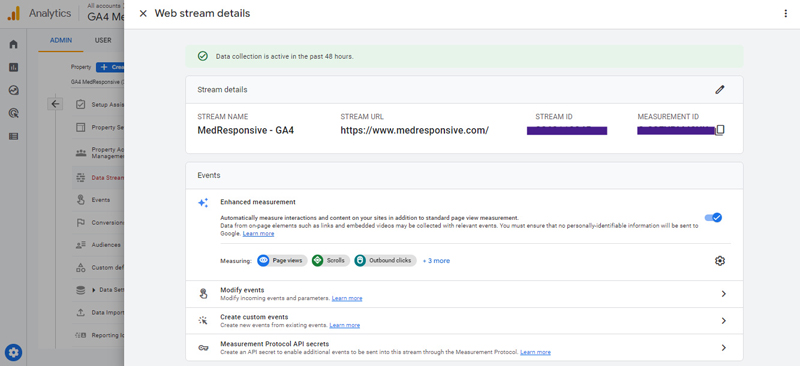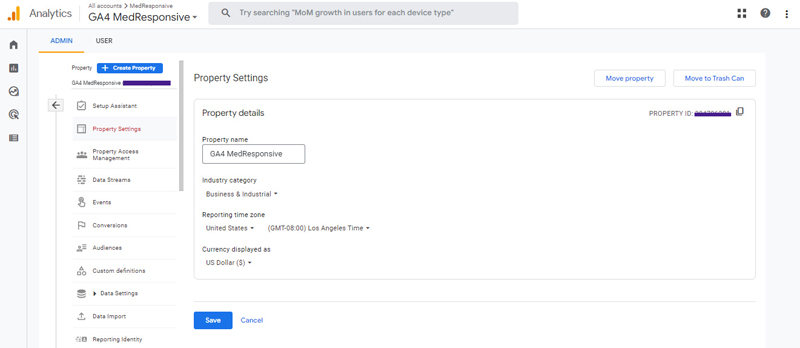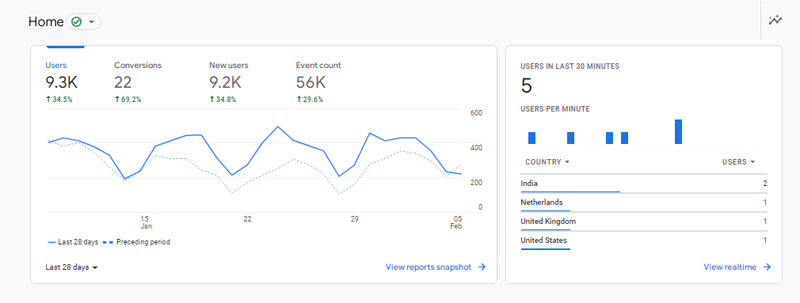Google has updated the search bar at the top of Google Analytics with three search options to analyze streams, accounts, and properties in eCommerce business accounts. These updates will allow users to find information about your current property or account, and to navigate to other Google Analytics 4 properties that they have access to.
Google Analytics 4, the next generation of Analytics is designed to collect both website and app data to better understand the customer journey. Marketers can use this tool to effectively analyze important customer usage metrics. The Universal Analytics (GA3) will be stopping collecting data from July 1st, 2023, and users were requested to upgrade to Google Analytics 4. GA 4 now provides advanced tracking and reporting features using the machine learning model. It allows website owners to analyze their site performance across different platforms more accurately. A properly managed Google Analytics account has become a critical business tool for ecommerce sites to enhance their business growth.
With this update, the search box at the top of Analytics now allows advertisers to search for –
- instant answers
- reports, admin pages, or insights
- account or property configuration, and
- help content
This tool provides search in all languages. There are many differences between Google Analytics 4 and Universal Analytics. GA4’s powered predictive metrics can make data-driven decisions on a large scale.
GA4 New Updates
New GA4 updates introduced by Google include the following.
-
- Web Data Stream Details
The following search terms allow you to open the details for a web or app data stream in the property you are using:
- the keyword “Tracking”
- a web stream measurement ID (i.e., “G-XXXXXXX”)
- an app stream ID (i.e., “XXXXXXX”)
-
- Current Property and Account Settings
The following search terms allow you to open the settings for the property you are using:
- the keyword “Property”
- the current property ID or property name
The following search terms allow you to open the settings for the account you are using:
- the keyword “Account”
- the current account ID or account name
-
- Go to other Google Analytics 4 properties
The following search terms allow you to navigate to a different Google Analytics 4 property from the one you are using. Analytics shows you up to 7 properties that match the search query.
- the property ID or property name of the other property
- a web stream measurement ID (i.e., “G-XXXXXXX”) in the other property
- an app stream ID (i.e., “XXXXXXX”) in the other property
Other GA4 Updates
On January 10, 2023, Google Analytics 4 (GA4), also introduced 12 new ecommerce dimensions and metrics that allow marketers to analyze information about their products or services and separately. With this update, Ecommerce advertisers and brands were able to view which items were added to cart, purchased, clicked, and more.
The new ecommerce dimensions and metrics added in Explorations and the Data API are:
- Item affiliation
- Item variant
- Items added to cart
- Items checked out
- Items clicked in list
- Items clicked in promotion
- Items viewed
- Items viewed in list
- Items viewed in promotion
- Shipping amount
- Shipping tier
- Tax amount
Google has also renamed several metrics such as –
- Add to carts (previously called Add-to-carts)
- Item-list click events (previously called Item list clicks)
- Item-list view events (previously called Item list views)
- Item view events (previously called Item views)
- Items purchased (previously called Item purchase quantity)
- Promotion clicks (previously called Item promotion clicks)
- Promotion views (previously called Item promotion views)
Google has also noted that “When you use an item-scoped dimension in an exploration, such as “Item ID” or “Item category”, be sure to use item-scoped metrics such as “Items purchased” rather than event-scoped metrics, such as “Purchases”. The former will give you the count of items. The latter will give you a count of purchase events.”
Ecommerce SEO involves analyzing important ecommerce interactions. Google Analytics tracking is an essential component of any online store. Online retailers as well as companies providing affordable digital marketing services need to be up to date with these changes. The additional information in GA4 will help to analyze streams, accounts, and properties in the specific account.
Need support with eCommerce SEO? At MedResponsive, our eCommerce business services are not limited to SEO, responsive web design and development, content marketing, email marketing and social media marketing. Talk to our team at (800) 941-5527 to schedule a FREE consultation with our senior solutions manager and find out more about our services.







